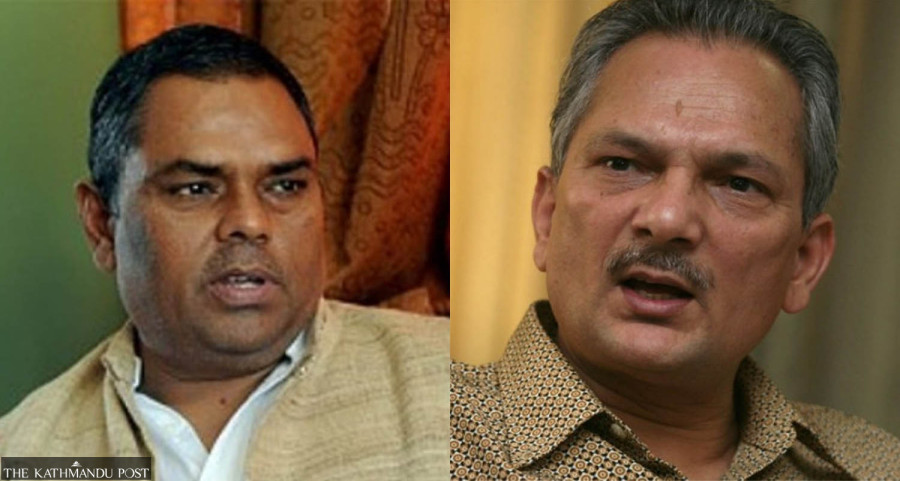Politics
Three years after joining hands, Bhattarai and Yadav agree to part ways
Insiders say both have reached an understanding not to remain together. The former Maoist leader’s future plans not clear yet.
Post Report
Three years after coming together, Baburam Bhattarai and Upendra Yadav have agreed to part ways.
According to Janata Samajbadi Party insiders, Bhattarai, the federal council chair, proposed to Upendra Yadav, party chair, on Wednesday that they should part ways amicably.
“Bhattarai conveyed to Yadav on Wednesday that they should split through an understanding, allowing leaders to choose where they want to stay instead of engaging in verbal blame-game,” said a central executive committee member close to Bhattarai. “Actually we wanted to develop a better political culture. It’s better to part ways as we cannot remain together.”
According to the leader, Yadav too agreed to the proposal.
Yadav then called a meeting of the Parliamentary Party and asked lawmakers to make their stance clear, saying that Bhattarai conveyed to him that he would form a new party within a few days.
“During yesterday’s Parliamentary Party meeting, Bhattarai, Mahendra Rai Yadav, who is currently a minister, and Rajkishor Yadav were not present,” the leader close to Bhattarai said.
Bhattarai meanwhile is in talks with another senior leader of the party Ashok Rai.
Bhattarai’s Naya Shakti and Yadav’s Sanghiya Samajbadi Forum-Nepal had merged in May 2019 to form the Samajbadi Party Nepal.
A year later, the Samajbadi Party merged with the Rastriya Janata Party in April 2020 to form the Janata Samajbadi Party. It, however, split in August last year. After the Election Commission decided to hand over JSP to Yadav and Bhattarai, Mahantha Thakur formed the Loktantrik Samajbadi Party.
Bhattarai, one of the key architects of the “people's war”, left the Maoist party in 2015, days after the promulgation of the constitution. He also led the Maoist government from 2011 to 2013.
While quitting the Maoist party, Bhattarai though had told reporters he did not have any immediate clear plan, he had dropped a hint of establishing a new force by joining hands with the like-minded people.
In June 2016, Bhattarai launched his own party—Naya Shakti Nepal—amid a grand function in the Capital, arguing that Nepal needed a “new force” for socio-economic transformation as “traditional parties” were outdated.
But his party struggled to gain traction.
He was the only person from his party to make it to the House of Representatives from the 2017 elections.
Some leaders from within the JSP say the union between Bhattarai and Yadav was not organic, as they were poles apart in terms of ideological issues and that they decided to merge out of some kind of compulsion.
It’s not clear yet whether Bhattarai wants to form a new party. A formal split is also complicated given the existing legal provisions. As per the law, any faction in a party deciding to split and set up a new party must command 40 percent in the Parliamentary Party and the central committee.
According to insiders, Bhattarai clearly lacks the number. If he chooses to walk out of the party, he may lose his lawmaker’s position.
The leader close to Bhattarai said they are holding a meeting on Thursday.
“A concrete decision will be taken by this evening,” he said.




 8.54°C Kathmandu
8.54°C Kathmandu













